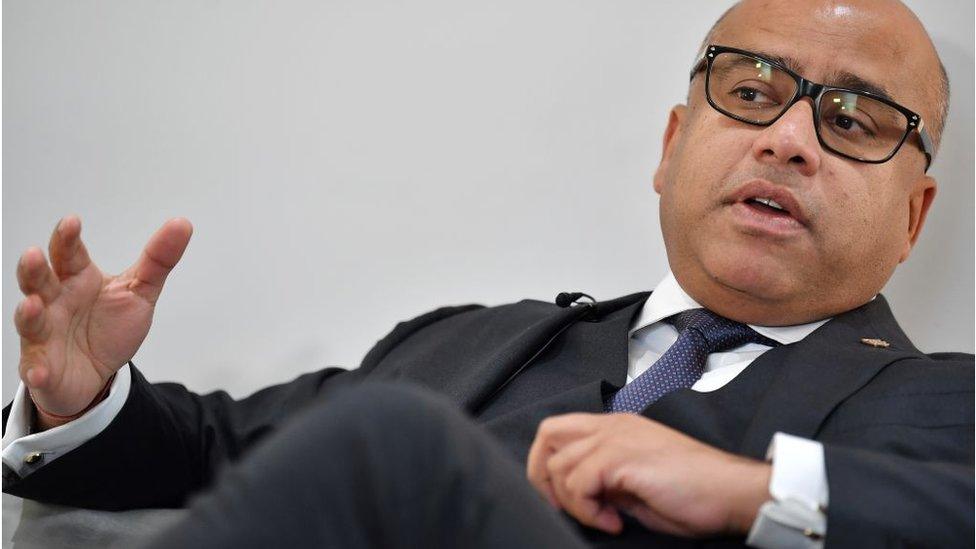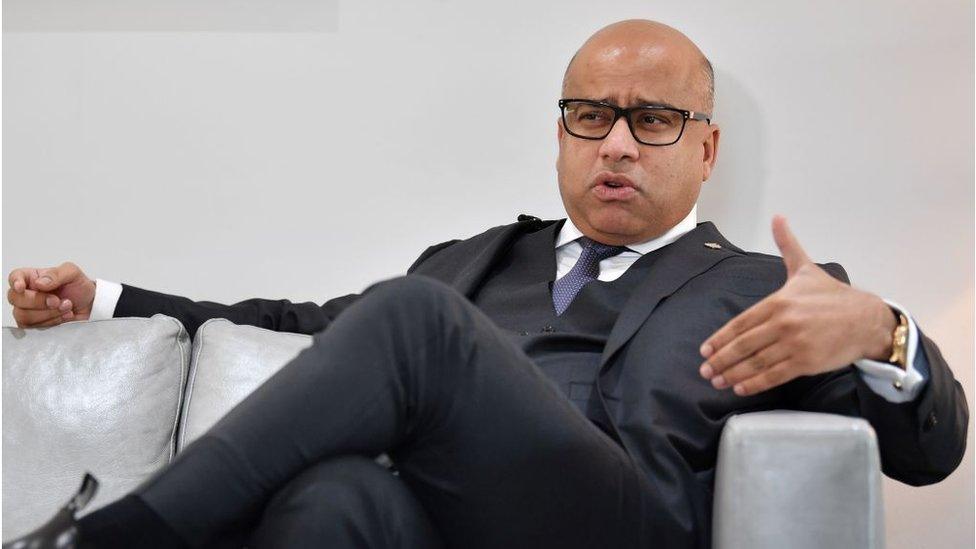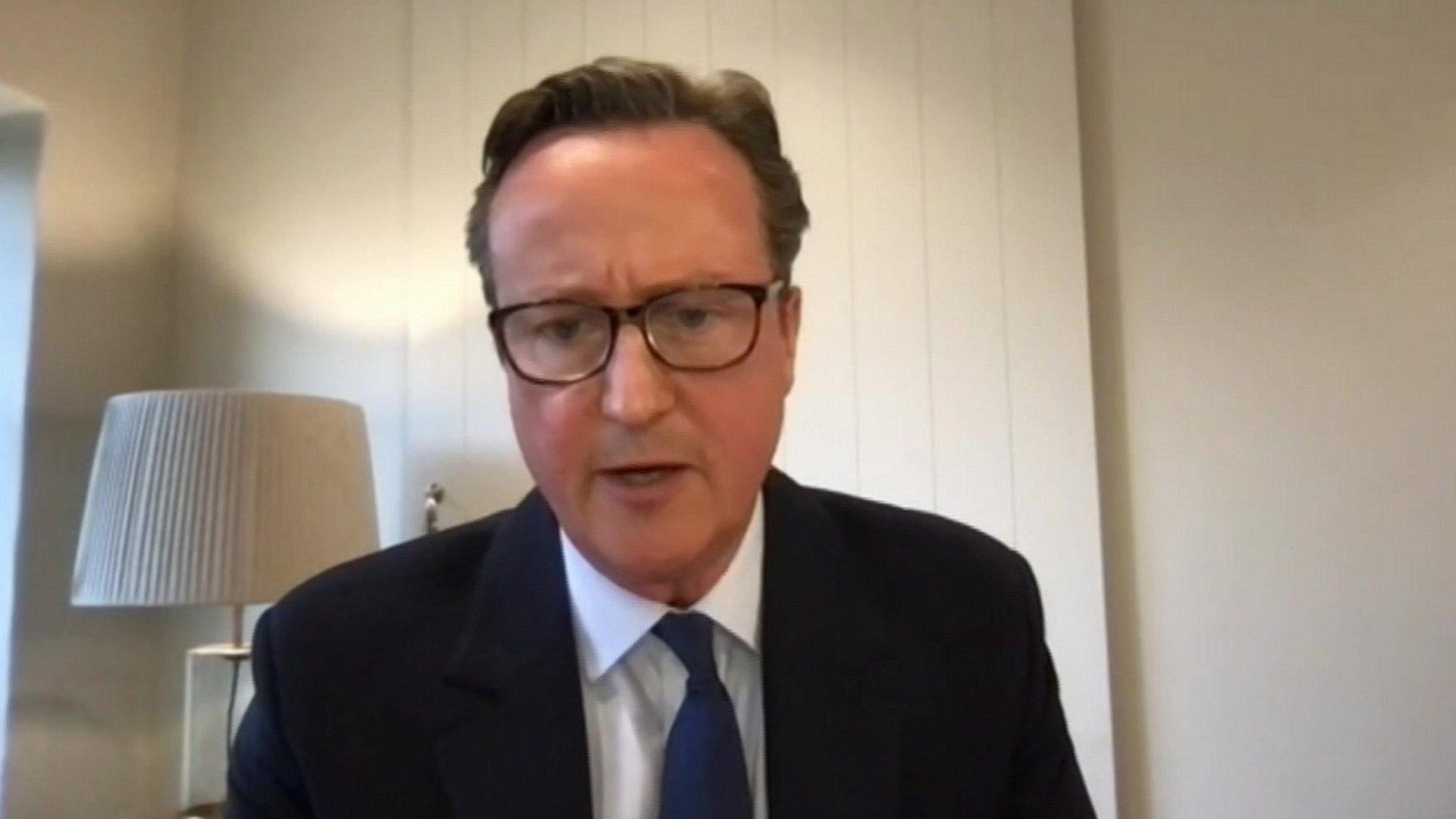Gupta empire facing UK fraud probe over Greensill
- Published

Sanjeev Gupta, head of GFG Alliance
The business empire of Liberty Steel owner Sanjeev Gupta is under investigation by the Serious Fraud Office (SFO).
The probe is over suspected fraudulent trading and money laundering, including its financing arrangements with failed company Greensill Capital UK.
Greensill, a major lender to Mr Gupta's business, collapsed in March.
GFG Alliance, Mr Gupta's family conglomerate, said it would co-operate fully with the investigation.
"As these matters are the subject of an SFO investigation we cannot make any further comment," a GFG spokesperson added.
GFG Alliance employs 35,000 people at companies stretching from Wales to Australia. Its Liberty Steel arm in the UK has about 3,000 staff.
The company's reliance on Greensill caused many to worry that it might itself be at risk following the finance firm's demise. GFG is in talks with finance firms about providing emergency loans. A request for a £170m from the UK government was rejected.
On Thursday, former prime minister David Cameron, who worked for Greensill and lobbied the government on its behalf, appeared before MPs to answer questions about his role.


The announcement of a Serious Fraud Office investigation into the workings of Sanjeev Gupta's metals-based empire has serious consequences, before any evidence is even heard.
First, the BBC understands that the Department for Business feels vindicated that it did not agree to give the so-called "saviour of steel" a requested government bailout of £170m.
Second, and perhaps more importantly, it sets back Mr Gupta's attempts to raise new finance to replace the money it once received from the now defunct Greensill.
The government has promised to save the steel plants - owned by Gupta's GFG alliance that are now in dire financial straits - but this investigation makes the chance of it surviving in its current form an increasingly remote possibility.
The news comes a day after former prime minister and former Greensill employee, David Cameron, defended his role in lobbying the government to grant Greensill access to a government-backed Covid loan programme.

In its statement, GFG said it "continues to serve its customers around the world and is making progress in the refinancing of its operations which are benefitting from the operational improvements it has made and the very strong steel, aluminium and iron ore markets".
Greensill's business model - called supply chain finance - worked by placing itself between customers and suppliers. It would immediately pay the invoices that suppliers gave to their customers, meaning those suppliers would not have to wait possibly for months for payment.
The Financial Times has claimed that one of Mr Gupta's companies had sent Greensill invoices for business it had supposedly done with four European metal companies. But those European companies told the newspaper they had not dealt with GFG.
However, GFG said the invoices were for products it expected to perhaps sell in the future and that the financial arrangement was common for many of Greensill's clients.
During Mr Cameron's appearance before the Treasury Committee on Thursday, he acknowledged that GFG had a very close relationship with Greensill, and said it was "disturbing" to read the reports about the invoices.
Mr Gupta was once hailed as the saviour of British steel when his company bought a struggling steel mill in South Wales, saving it from likely closure. Liberty Steel then went on to snap up several ailing UK plants and turn them around.
GFG now operates in 30 countries, and has revenues of about £20bn.
- Published13 May 2021

- Published27 April 2021
- Published13 May 2021
